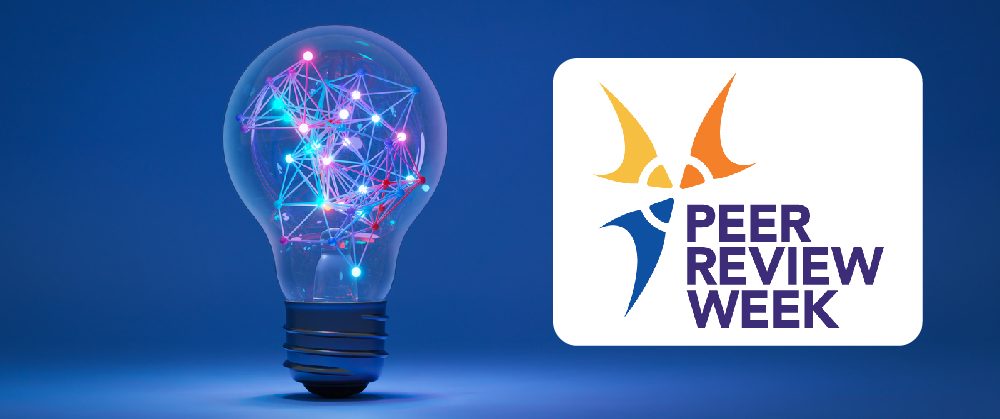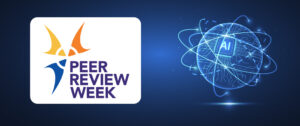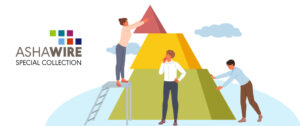The way journal articles are written, reviewed, and even published has evolved dramatically over the past 20 years. Reflecting this, it should come as no surprise that this year’s theme for Peer Review Week is “Innovation and Technology in Peer Review.”
Given recent conversations across the country on the use of generative artificial intelligence (AI), this theme is particularly timely. In recognition of Peer Review Week, we’re reviewing how ASHA Journals uses AI and other technologies.
Generative AI in ASHA Journals
Use of AI by Authors
Last year, ASHA Journals clarified our policy on AI. We acknowledge that authors may use AI, large language models (LLMs), and other technologies in the development of a manuscript—with a few key caveats.
- First, the authors must attest that they used AI technology, even if the resulting language is later edited by a human.
- Second, the authors must assume responsibility for the accuracy, originality, and integrity of all content in a journal article—in accordance with our existing stance on author originality.
- Finally, AI, LLMs, and similar technologies do not meet our criteria for authorship and cannot be credited as contributors to a manuscript.
Use of AI by Editorial Board Members and Reviewers
If you’re an Editorial Board Member or other reviewer at ASHA Journals, you cannot use AI or LLMs in your role. This policy protects the peer review process and ensures that authors’ unpublished manuscripts aren’t used in future LLM outputs.
We believe that AI and other new technologies work best when paired with human intelligence and expertise. That’s why we’re helping early-career researchers hone their skills as reviewers by giving them the opportunity to learn from experienced editors through our Article Peer-Reviewer Training (APT) program. During this year-long learning experience, participants will be paired with an experienced editor in a collaborative mentor/mentee format.
How We Use Technology at ASHA Journals
The ASHA Journals Program uses emerging technologies to improve the author experience and support publication ethics. Manuscripts submitted to ASHA’s journals are published more quickly when authors follow detailed formatting guidelines; however, these instructions may be confusing to some authors.
ASHA Journals offers PaperPal Preflight, a free automated check, to help authors ensure their papers meet these requirements. This system does rely on AI and automation to facilitate the checking of manuscripts and recommend revisions; however, it does not save data or train any LLMs using manuscript content.
Our online peer review platform, Editorial Manager, runs manuscripts through a program called Similarity Check/iThenticate. These manuscripts are given a similarity score from 0 to 100, and manuscripts with a particularly high score are analyzed by Journals staff to ensure that the manuscript meets strict standards for originality.
Emerging technologies help us protect the integrity of the research that we publish and enhance the author experience. As new AI-assisted technologies become available, our Journals Board and staff will ensure that authors and reviewers have access to the latest technologies—while continuing to prioritize ethical and privacy concerns.
Celebrating Peer Review (Not Just This but Every Week!)
Emerging technologies can improve the author experience, but we must ensure that its usage doesn’t compromise protection of the author’s intellectual property. Stay tuned to our Context blog for future updates on our policies related to emerging technologies—as well as news on how we’re using these technologies here at ASHA Journals.
Peer Review Week is an important opportunity for us to join with researchers, editors, and others across the world to discuss our shared goals. You can read prior coverage of Peer Review Week below!
Peer Review Week 2023: The ASHA Journals Look to the Future
Peer Review Week 2022: Supporting Research Integrity
Peer Review Week 2021: Identity in Peer Review
Peer Review Week 2021: Demographic Data Collection in ASHA Journals
Peer Review Week With the ASHA Journals (2020): Trust in Peer Review







